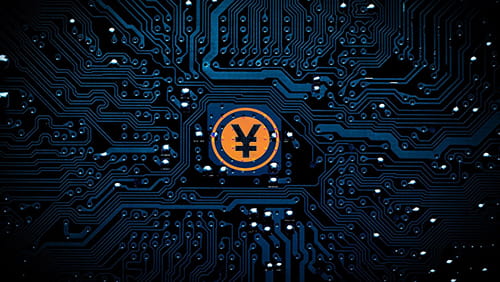
A little less than two months ago, Bloomberg reported that it had insider information asserting that Macau might eventually move away from using the Hong Kong dollar as its base currency, opting, instead, to rely on China and the introduction of the digital yuan. This announcement created waves in the gaming community, with mounting concern over the control China wanted to exert on the city – the possibility of Macau going the same direction as Hong Kong was more than a little unnerving. Although Macau’s gambling regulator, the Gaming Inspection and Coordination Bureau (DICJ, for its Portuguese acronym), denied the Bloomberg report, there may be more to the story than what appears. Analysts with the Sanford C. Bernstein brokerage have spoken up and are asserting that a move to a digital yuan would be beneficial for Macau’s casinos in the long run.
The analysts issued a research report last Friday, explaining that a Chinese digital yuan as the central currency in Macau would help both the mass and premium-mass segments. The conclusion is based, in part, on China’s crackdown on cross-border payments and transactions, and the analysts believe that the use of the digital yuan would facilitate those payments, as well as appease Chinese authorities. China has been working harder than ever to crack down on gambling and illicit payment activity recently, and this isn’t going to stop anytime soon.
Bernstein analysts Vitaly Umansky and Tianjiao Yu said in the report, “[A digital yuan] would allow greater [Chinese] government scrutiny and control over money flows [and] it would also allow easier money transfer [and] eliminate the need to use intermediaries (like junkets, underground banks or pawnshops). Mass and premium-mass play could surely benefit due to ease of money flow.”
The fact that analysts are still allocating time and resources to the subject of the use of the digital yuan in Macau would indicate that the DICJ’s denial of the rumors might be misguided. There seems to definitely be some validity to the Bloomberg report and it’s very possible, given China’s recent stance on political control, that Macau might be expected to make changes when it comes time to issue new casino concessions next year. However, at this point, there has not been any solid evidence to support that idea.
What is known, according to the Bernstein analysts, is that digital money is very likely to come to Macau in some form or another. Umansky and Yu added, “The internationalization [of Chinese currency] could go a long way to increasing the probability” of seeing it become the “standard currency in Macau.” They pointed out that it would be a “long process,” but predict, “Eventually digital transactions will be the norm and cash as we know it will be an historical relic. But this will be an evolutionary development that will likely take many years.”